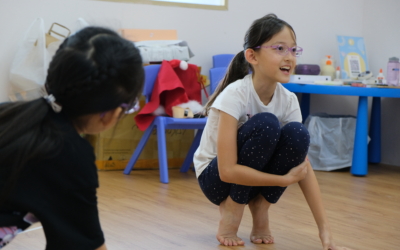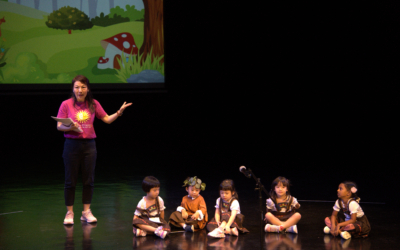(Speech) and Drama Classes
I say I work in a drama academy and almost immediately, I hear, “Oh, you teach speech and drama”. This happens too often. Drama classes have, somehow, become synonymous with teaching speech. Is there an unwarranted emphasis on speech? What is the role of speech in drama classes?
Talk of the Town
Popular speech and drama programmes highlight the development of speech because results are tangible and progress is easy to measure. Speech is important, but it is only one aspect of communication that drama develops. We have to go beyond expecting children to speak well.
Drama equips children with communication skills. This involves the use of verbal and non-verbal expressions, listening skills, and turn-taking. Drama also encourages creative expression! Children discover how best to express their thoughts, ideas, and emotions; they learn and practise communicating in different social contexts.

More than Words
Speech may be the most common medium for communication, but it isn’t the only one. As we know, crossing our arms can send a more powerful signal than a verbal, “I’m upset”! Some drama programmes incorporate movement activities to enhance spatial and body awareness.
In fact, communication makes up only one part of drama. Let’s look further. Let’s talk about how drama develops children holistically, as individuals.
Drama promotes collaboration among peers, builds confidence and self-esteem, and deepens appreciation for the arts and culture. Drama also prompts introspection and improves interpersonal skills, such as empathy and compassion. These are hard to assess and take a while to develop, but these skills set children up for a more fulfilling life.

Drama classes offer way more than just speech. So let’s put the speech aspect of drama classes in parenthesis. Let’s expand our focus to other aspects of development that drama enhances.


